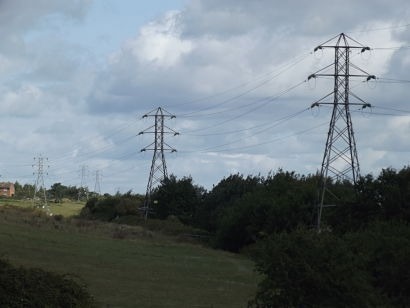
The RAE report states crucial planning decisions need to be taken and secure investment obtained if the UK is to deliver a reliable, affordable and decarbonised energy system capable of achieving the country’s climate change targets. The report was prepared for the Prime Minister's Council for Science and Technology. Entitled A critical time for UK energy policy, the report details the actions needed now to create a secure and affordable low carbon energy system for 2030 and beyond.
The study looks at the future evolution of the UK’s energy system in the short to medium term. It considers how the system is expected to develop across a range of possible trajectories identified through modelling and scenarios.
“The report’s findings closely align to the ETI’s view that the UK can implement an affordable transition to a low carbon energy system by 2050 but decisions taken in the next decade will be critical – we have 10 years to prepare for a low carbon transition” said ETI Chief Executive Dr David Clarke FREng, who led the group that produced the report. “Updating the UK energy system to meet the ‘trilemma’ of decarbonisation, security and affordability is a massive undertaking. Meeting national targets affordably requires substantial decarbonisation of the electricity system by 2030 through a mix of nuclear power, CCS and renewables with gas generation for balancing. Beyond 2030 we must then largely decarbonise heat and transport, potentially through electrification but also using other options such as hydrogen and biofuels. We also need to adapt our transmission and distribution networks to become ‘smarter’.”
Mr Clarke added that a failure to plan the development of the whole energy system carefully will result, at best, in huge increases in the cost of delivery or, at worst, a failure to deliver. Substantial investment is needed and current investment capacity is fragile. Furthermore, Carlton’s new Trafford CCGT plant has announced further financing delays and the hoped-for investment by Drax in the White Rose CCS demonstrator has been withdrawn. The UK has also dropped four places to 11th in EY’s renewable energy country attractiveness index.
The report identifies a number of recommended actions by government, as a matter of urgency. These include enabling local or regional whole-system, large-scale pilot projects to establish real-world examples of how the future system will work, moving beyond current single technology demonstrators and including all aspects of the energy systems along with consumer behaviour and financial mechanisms.
New capacity in the three main low carbon electricity generating technologies, nuclear, carbon capture (CCS) and offshore wind, needs to be driven forward. Policies need to be developed to accelerate demand reduction, especially in domestic heating, and smarter demand management needs to be introduced. Market mechanisms and incentives need to be clarified and stabilised in order to give the industry the confidence to invest.
The report also notes that new technologies, such as solar PV, could become unexpectedly significant, for example with regard to the falling cost of solar. It warns that large scale deployment of novel technologies would take decades and that the system cannot be planned on promises and aspirations alone. The RAE is calling instead for a combination of known technologies to be scaled up to unprecedented levels and integrated in smarter ways. Interestingly, the report also notes that the addition of shale gas or tight oil is unlikely to have a major impact on the evolution of the UK energy system given secure and diverse hydrocarbon supplies from a number of sources.
For additional information:

